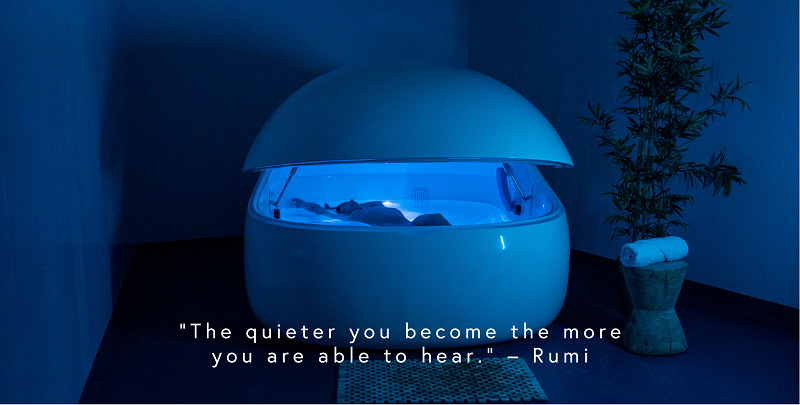The Benefits of Silence
“Sound is our mind, silence is our being.” - Osho

They say that silence is golden, and in an ever increasing chaotic world with multiple distractions and sources of worry and fear, it is needed more than ever. With our minds incessantly chattering and external noise interrupting us, it can be difficult to focus on what we really think and how we really feel. This is why we believe that silence is important to help us reconnect with ourselves.
Here are a few reasons why we could all benefit from more moments of silence:
Stimulates Brain Growth
According to a study conducted by regenerative biologist Imke Kirste from Duke University [1], two hours of silence a day produces new cell creation in the hippocampus, the part of the brain associated with learning, memory and emotional regulation. This conclusion was found after sound tests on mice revealed that silence seemed to increase the mice’s alertness. Kirste elaborates: “We saw that silence is really helping the new generated cells to differentiate into neurons and integrate into the system.”
Reduces Stress
Silence has also been found to reduce the stress hormones cortisol and adrenaline. Noise pollution, on the other hand, can lead to higher levels of cortisol. As clinical psychologist Martine Prunty states: “an accumulation of unpleasant noise can lead to mental stress and an excess release of cortisol.”
Lowers Blood Pressure
Even just short periods of silence have been shown to lower blood pressure and blood circulation in the brain. According to a study in the journal Heart in 2006 [2], just two minutes of silence is shown to relieve tension in the body and brain and is actually more relaxing than listening to music.
Increases Focus
Without external distractions you naturally have the ability to focus more on the present moment. This enables you to devote your attention to one thing at a time, helping you to achieve maximum efficiency when performing tasks. Furthermore, a study in 2021 [3] where 59 candidates performed tasks that required concentration, with either silence, speech or other noise in the background, revealed that those that worked in silence experienced the least cognitive load and the lowest stress levels.
Stimulates Creativity
Silence may help to stimulate creative ideas by enabling you to tune into your thoughts and feelings more clearly, which leads to the better problem-solving skills and the ability to think more innovatively. As Wayne Dyer says: “Everything that’s created comes out of silence. Thoughts emerge from the nothingness of silence. Words come out of the void. Your very essence emerged from emptiness. All creativity requires some stillness.”
Ways You Can Practice Silence
As well as floating in a sensory deprivation tank, there are many other ways in which you can incorporate silence into your daily life. These include:
- Practicing mindfulness and focusing on your breathing.
- Turning off all technology/electronics.
- Refraining from speaking, humming or singing.
- Eating your meals in silence and focusing on your food.
- Sitting in a quiet space without distractions.
- Taking a quiet walk in nature by yourself.
- Scheduling a period of intentional silence to follow through with every day.
How Does Floating Help?
Floating in a sensory deprivation tank provides the ultimate silence experience, especially in a busy city where total silence may be difficult to achieve. When the pod lid is closed and the lights are out, you can experience complete peace without the disturbance of the outside world. This then allows you to achieve the aforementioned benefits that prolonged periods of silence may provide. Find out more about how Floating works HERE>
[1] https://www.ncbi.nlm.nih.gov/pmc/articles/PMC4087081/
[2] https://www.ncbi.nlm.nih.gov/pmc/articles/PMC1860846/
[3] https://pubmed.ncbi.nlm.nih.gov/32805749/











